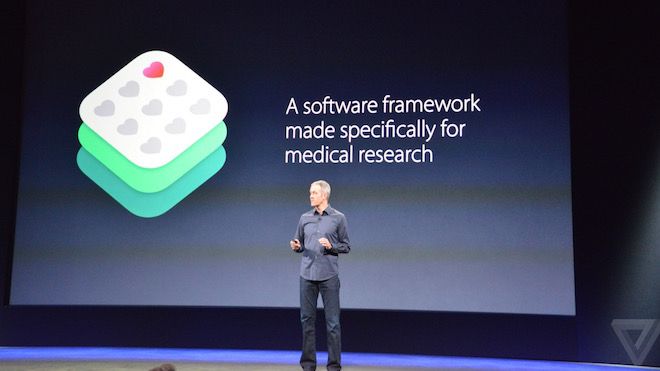
Silicon Valley becomes a bioethical testing ground
Internet giants move into medical research.
Apple’s promotional video for ResearchKit
Silicon Valley start-up 23andMe, as well as internet giants Google, Facebook and Apple, are competing to create databases which can be made available to medical researchers. But bioethicists are asking whether participants’ privacy will be respected and whether they understand what they have consented to.
23andMe, whose CEO is Anne Wojcicki, the former wife of Google co-founder Sergey Brin, is the leader in the new field of collecting health and genetic data on-line. For the past two years the company has been hampered by an FDA ban on providing direct-to-consumer genetic tests. But in October the FDA relaxed these restrictions, giving 23andMe’s plans for personal genome testing a substantial boost.
The San Francisco Chronicle describes the situation:
Most medical studies take months or years to solicit enough volunteers. But 23andMe puts the genetic information of 700,000 people at researchers’ fingertips, allowing medical studies to be fast-tracked and new treatments to make their way into hospitals sooner, experts say, giving patients with chronic diseases a better quality of life.
“Instead of actually having to do clinical trials the old-fashioned way, we can enable researchers to get their answers instantaneously,” Wojcicki said in an interview with this newspaper. “And they pay us for that.”
But some experts worry 23andMe users have no idea where their own genetic information will end up. Because the company is relying on data sales to become profitable — selling $99 home genetic testing kits doesn’t pull in the big-dollar revenue — 23andMe may disseminate consumers’ genetic information not only to government agencies and research institutions, say legal and bioethics experts, but also to big pharmaceutical companies, marketers and advertisers.
The Hastings Center Report is currently inviting bioethicists to comment on the ethical complications posed by these new services.
Google has recently launched a life sciences research program and is luring scientists away from universities and lab benches to work on exciting projects combining health care, data analytics and engineering. Facebook’s project is called Genes for Good, which, it says, “will advance our knowledge of how genes affect disease, all for the common good”. And Apple has ResearchKit, a platform for developers to create apps “that could revolutionize medical studies, potentially transforming medicine forever”.
Do participants know what they are giving away when they consent?
Between 85% and 90% of 23andMe’s customers allow their personal information to be used for medical research. Dr Paul Appelbaum, of Columbia University, says “That consent rate is quite high. Most studies conducted in academic settings have much lower consent rates. That raises the question of how well 23andMe describes what it is that they are asking permission for.”
And then there is the issue of privacy. Although the data provided to researchers has been de-identified, there are ways to circumvent this.
Susan Gilbert writes in The Hastings Center Report: “Social media and communications technology are increasingly integral to daily life, and so it’s no surprise that they’re also becoming embedded in biomedical research. Is special oversight warranted? If so, what should it be?”
https://www.bioedge.org/images/2008images/TH_researchkit.jpg
Creative commons
https://www.bioedge.org/images/2008images/apple_research_kit_2.0.0v.jpg
23andMe
clinical trials
genetic testing
internet
Silicon Valley
- How long can you put off seeing the doctor because of lockdowns? - December 3, 2021
- House of Lords debates assisted suicide—again - October 28, 2021
- Spanish government tries to restrict conscientious objection - October 28, 2021
